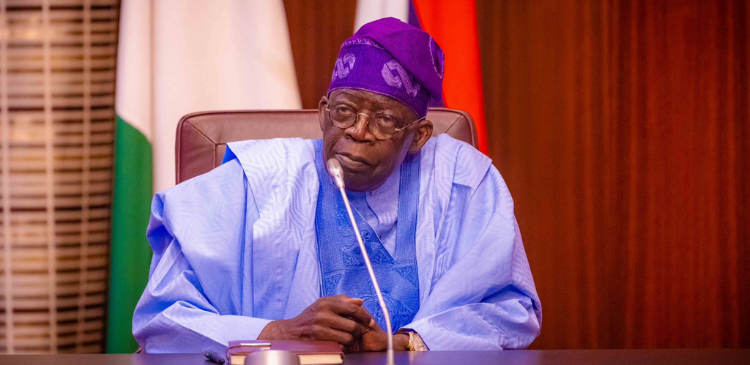President Bola Tinubu is set to fill no fewer than 2,000 vacant positions following Monday’s dissolution of governing boards of over 153 agencies, parastatals, institutions, and government-owned companies.
The President, it was gathered on Wednesday, would fill the positions mostly with members of his party, the All Progressives Congress
The dissolved boards were among the 209 constituted by former President Muhammadu Buhari in December 2017.
The PUNCH reports that Tinubu on Monday night announced the dissolution of the governing boards of all Federal Government parastatals, agencies, and commissions.
A statement by the Director of Information, Office of the Secretary to the Government of the Federation, Willie Bassey, said only boards of commissions and councils listed in the third schedule, part one section 153 (i) of the 1999 Constitution of the Federal Republic of Nigeria were excluded from the president’s directive.
The Nigeria Judicial Council, Code of Conduct Bureau; Council of State; Federal Character Commission; Federal Civil Service Commission; Independent National Electoral Commission; National Population Commission; Police Service Commission; and Revenue Mobilisation Allocation and Fiscal Commission are part of the agencies excluded from the directive.
Findings by our correspondents on Wednesday, however, revealed that no fewer than 2,000 persons are expected to be appointed to over 153 boards of agencies, parastatals, commissions, departments, and others by the President.
Vacant slots
Notable among them are the North-East Development Commission with 12 vacant board slots, Independent Corrupt Practices and Other Related Offences Commission with seven board seats; Joint Admissions and Matriculation Board, seven; Teachers Registration Council of Nigeria, 21; Nigeria Social Insurance Trust Fund, 12; National Universities Commission, 21 and Transmission Commission of Nigeria, 14; National Health Insurance Authority,12
Others include the Nigerian Safety Investigation Bureau, 7; Nigerian Meteorological Agency, seven; Nigerian College of Aviation Technology,8; Nigerian Police Trust Fund, 8; Nigerian Natural Medicine Development Agency,10; Federal Institute of Industrial Research, 11 and National Centre for Technology Management, 11.
Also on the list are the Nigerian Building and Road Research Institute, 11; Nigerian Customs Service, 11; National Pension Commission, 17; National Agency for Prohibition of Trafficking In Persons, 11; National Identity Management Commission, 19; West Africa Examination Council, 8; Niger Delta Development Commission, 13; National Institute of Sports,12; Nigeria Deposit Insurance Company,12; National Bureau of Statistics,15; Federal Inland Revenue Services, 15; Federal Airports Authority of Nigeria, 8 and Nigerian Airspace Management Agency,7, among others.
Though this newspaper could not confirm the total number of vacant board slots that would be filled due to a lack of credible information about dozens of agencies and commissions many of which had no website, findings indicated that a federal board had an average of eight members, while some agencies had as many as 14 board positions.
The PUNCH reports that the previous administration engaged in last-minute appointments to some boards.
Buhari had constituted several boards of agencies and parastatals close to his handover date which was criticised by observers.
Four days before he handed over to Tinubu, Buhari approved the appointment of Garzali Abubakar as the Executive Secretary of the National Agricultural Development Fund.
The former Presidential aide, Garba Shehu in a statement said Buhari also approved the appointment of the chairman and board members of the fund.
Those appointed include Aduke Hussain as Chairman, Hussaini Mohammed (North Central Representative), Mohammed Umar (North West), Abdulsalam Ahmed (North-East), Stella Uzokwe (South-East), Stephen Ikata (South-South) and Olufunlayo Oluwole Faloye (South -West).
Though it is not clear when Tinubu plans to constitute the new boards, it is expected that the APC members would get most of the juicy appointments.
Party sources told The PUNCH on Wednesday that the board appointments served as an avenue to reward and empower party loyalists and supporters.
However, the Director of Publicity, APC, Bala Ibrahim, said board appointments should not be seen as a reward system.
He noted that it was the prerogative of the President to decide whether he wanted party members or technocrats as members of his administration.
Even if people are jostling for appointments, I don’t think that will be considered something that is paramount or fundamental. The president is not going to be stampeded, I suppose, into submitting to pressure.
“I think he is going to look out for competence and capacity in the delivery of his agenda. He and the party had made promises to the people. I don’t think it is the pressure of the hustlers that will determine who gets what positions. This is my thinking.”
Tinubu, at a meeting with Senators on June 7, had indicated that those who lost elections and other members of the party that they would not be left out in appointments.
He said, “The elephant is big enough for all members, and indeed Nigerians, to have a share of the renewed hope in due course.”
In separate interviews with The PUNCH, stakeholders advised the President to place emphasis on merit in appointing board members.
The President of the Electricity Consumers Association of Nigeria, Chijioke James, expressed hope that the President would consider expertise and capacity in the constitution of the TCN board, stressing the need to declare a state of emergency in the power sector.
“The President I’m sure is aware of the need to declare an emergency in the power sector to enable him to renew the hopes of all in a prosperous and productive Nigeria. In line with the above aspiration, I believe and rightly so that the president will consider expertise, experience, and capacity in his appointments to constitute a new board for the dissolved TCN to achieve success in reinvigorating the economy of Nigeria in which energy sector is key and critical,’’ James submitted.
Credit: The PUNCH


